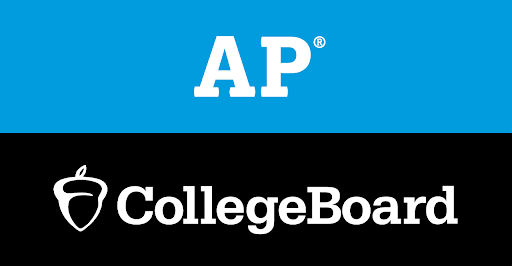AP, NECCO, or SNHU

Photo Source: CollegeBoard.com
January 24, 2023
Creating a plan for courses in high school can be stressful. With added pressure from teachers, parents, and one’s own goal for success, along with many choices and career paths to consider, developing a schedule that both sets one up for success and is enjoyable in the long run is difficult. This process can be especially difficult for those considering college level courses. Pentucket offers a wide range of courses that introduce high school students to the college work load, environment, and expectations, as well as offer an opportunity to get credits for college in the future. These options can be overwhelming, however, as there are many different downsides and benefits that are helpful to know when making a decision. Knowing the options and having an understanding of pros and cons will allow students to make decisions based on personal preferences and abilities.
The Options
AP
One of the most well-known options, Advanced Placement is a college level course that provides credits for some colleges, depending on the student’s grade on the exam, their major, and the school. Justin Doucette, a senior, “loved every second” of his AP classes. He has taken three AP classes in the past, and is currently taking two. He loves the environment of people who fully enjoy the material and are genuinely interested in the class. According to him, an AP class is beneficial to those who enjoy studying and learning the material, as they typically are fast-paced and heavy on the workload. Pros:
- Taking an AP class does not require students to leave the school, so those without a license or a car do not have to worry about transportation. They also have the opportunity to take the class with friends and/or peers, making the class more enjoyable and allowing more resources for help
- Cheaper option: AP classes are generally cheaper than NECC and SNHU programs, as it is only about $100 for the exam, possibly more fees for books or other resources
- Boosts SAT scores
- The workload often prepares one for college
- Encourages good time management
Cons:
- Some colleges do not take AP credit, only if one gets a 3 or 4 or higher on the respective exam, and some don’t take it at all.
- It can be challenging for those not interested in the class and only looking for boosts on college applications, causing more stress and making it not worth it
- Challenging workload
NECC:
Another popular program is the dual enrollment option with Northern Essex Community College. When worked into a student’s schedule, they are dismissed at noon, and allowed to attend their afternoon classes on the NECC campus or online from home. This program is widely popular for its ability to offer variety in one’s schedule and the opportunity to gain college credit and experience. Justin Doucette, who is currently enrolled in one class at NECC and has taken two, would recommend NECC classes for those who want a more “relaxing” experience. The workload is less rigorous than an AP class, however the class is a faster pace, so there is more accountability required. Justin appreciates the ability to work ahead in his NECC classes, as the assignments are readily available and one is able to prioritize and organize their life in that sense.
Pros:
- College credit is guaranteed for Massachusetts states schools, as well as selective colleges in New England
- Student get experience with real college courses, professors, and workload, and one is able to immerse themselves in the environment
- It is a way to change up the normal routine of a day, and get out of the school building/have more responsibility
- Workload is not too demanding
- Looks good on college applications
- Students can opt to take their classes online
Cons:
- It costs about $300 ($110 for each credit) to take the class
- Less options for classes than AP but more than SNHU
- Credits are only accepted in Massachusetts and some surrounding states
SNHU:
The concurrent enrollment program with SNHU and Merrimack College is an accessible yet beneficial opportunity for those who are interested in attending one of those schools or looking for a boost on their college applications. It is easy to enroll in this program, and overall does not create disturbance in one’s schedules, and instead offers a safe option for those looking to attend college a bit closer to home.
Pros:
- They are the same as honors classes, so the workload and expectations might be the same if one is used to honors classes
- Because of this, one simply has to opt for the credit, and they are able to take it with friends and/or peers
- About $100 per credit
Cons:
- Significantly fewer options for courses
- It is not a dual enrollment, it is a concurrent enrollment class, so credits are only accepted by SNHU and Merrimack College
- Not any significant college experience, as the classes are still high school classes
- Therefore, there is little, if not no, benefit to putting this program on one’s applications
All of these options have their own benefits that appeal to all different people. Making the “right” choice is entirely up to ones individual goals and needs. Justin also had a valid and interesting point about the pressure of taking an AP class when he was interviewed: “each person is different, and not taking an AP class does not make you ‘less smart’ than someone else; taking an AP class does not make you ‘better’ than anyone else. Everyone is on their own academic journey, and it is your job as a student to challenge yourself for your goals, not impress the people around you.” It is important to prioritize one’s own mental well-being and take time to ensure one’s schedule is right for them because their future is no one else’s but their own.
